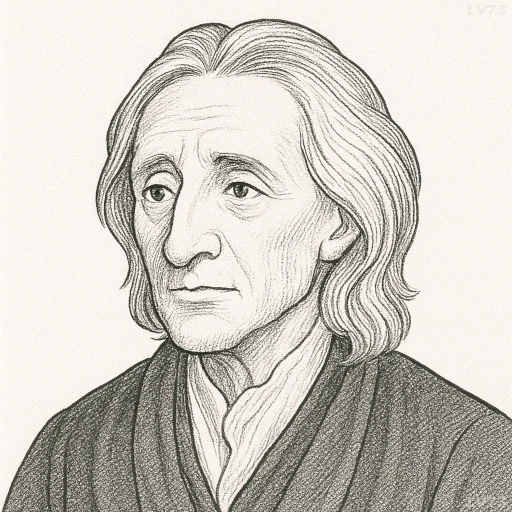“The end of law is not to abolish or restrain, but to preserve and enlarge freedom. For in all the states of created beings capable of law, where there is no law, there is no freedom.”

- August 29, 1632 – October 28, 1704
- Born in England (UK)
- Philosopher and political thinker
table of contents
Quote
“The end of law is not to abolish or restrain, but to preserve and enlarge freedom. For in all the states of created beings capable of law, where there is no law, there is no freedom.”
Explanation
John Locke’s understanding of law is deeply connected to his views on freedom and government. In this quote, Locke argues that the primary purpose of law is not to limit or suppress freedom, but to protect and enhance it. For Locke, freedom is defined as the ability to act according to one’s own will, as long as it does not infringe on the rights of others. Without law, there is no means to safeguard these freedoms, and society would descend into chaos or anarchy, where individuals are constantly at the mercy of each other’s will.
Locke’s historical context in the 17th century was marked by political upheaval, particularly the Glorious Revolution of 1688, which overthrew King James II and established constitutional monarchy in England. Locke was a supporter of limited government, believing that authority should be derived from the consent of the governed. His social contract theory posited that individuals come together to form governments to protect their natural rights to life, liberty, and property. Thus, laws were necessary to preserve individual freedom by preventing the infringement of rights, not by limiting personal choices.
In modern times, Locke’s views on law and freedom continue to shape democratic governance and civil rights. The idea that law should preserve and expand freedom resonates in debates about individual rights, such as the freedom of speech, privacy, and equal protection under the law. For example, in democratic societies, laws that protect civil rights are seen as essential to ensuring that all individuals can pursue their interests without fear of discrimination or oppression, thus enlarging freedom. Locke’s quote reminds us that law, when properly designed, is a tool for enhancing personal freedom, not an instrument of tyranny.
Would you like to share your impressions or related stories about this quote in the comments section?


